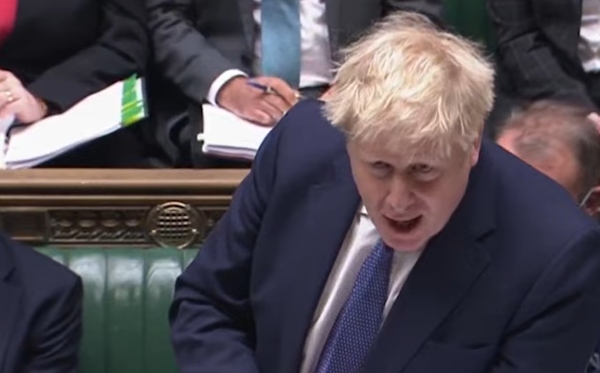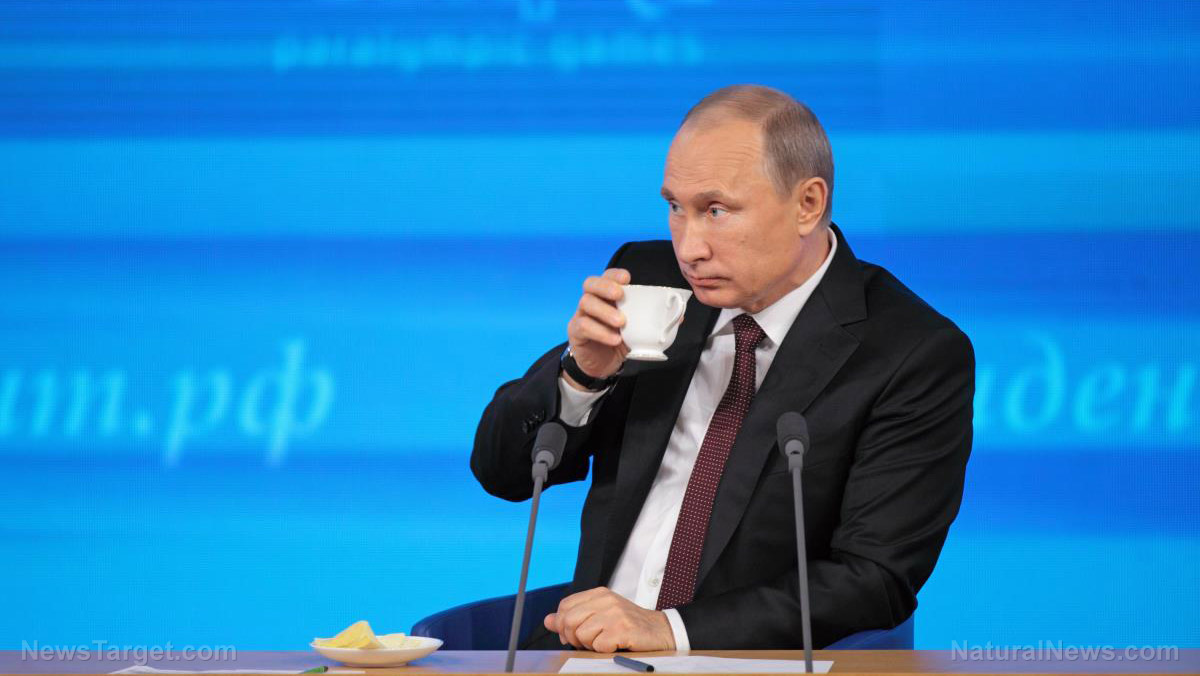Preparing for the worst: EU stocks up on coal as ban on Russian imports looms
04/10/2022 / By Kevin Hughes

European buyers are expanding shipments of coal from across the world amidst talks of European Union ban on Russian imports and the struggle to ease stiff gas supplies.
The European Commission on Tuesday, April 5, suggested new sanctions against Moscow over its invasion of Ukraine, along with a ban on buying Russian coal and on Russian ships entering EU ports. The latest restrictions come at a time of doubt about future gas deliveries from Russia to the EU after the Kremlin’s demand that buyers begin paying Russian gas giant Gazprom in rubles.
Analysis by ship-broker Braemar ACM based on ship tracking data has found that European countries imported a total of 7.1 million tons of thermal coal in March, a 40.5 percent increase year-on-year and the highest level since March 2019. (Related: Massive energy and power crunch coming soon as U.S. coal producers have already sold their coal inventories for 2022.)
“Despite Russian coal shipments to Europe in March still continuing at pre-war levels, the expected alteration in coal flows into Europe has started to show. Shipments from Colombia and the United States have been strong in response to the conflict with Atlantic suppliers providing the most cost-efficient alternative for European end-users,” Braemar dry bulk analyst Mark Nugent said.
Nearly half of EU’s oil and gas imports come from Russia
According to the European Commission website, the EU relies on Russia for around 45 percent of its coal and gas imports and around 25 percent of its oil imports.
Braemar data revealed 3.5 million tons of Russian thermal coal was imported into the EU in March, the largest monthly total since October 2020.
On a weekly basis, March 28-April 1 saw the biggest levels of Russian thermal coal imports since the Feb. 24 invasion started, with 887,000 tons of Russian thermal coal imported into the EU as reported by Braemar.
German coal importers’ group VDKi on Wednesday, April 6, said the nation should be able to seek alternatives to Russian hard coal imports by the high demand winter season, although there will be technical issues and added costs.
The Braemar data showed thermal coal imports from Colombia reached 1.3 million tons in March, increasing by 47.3 percent year-on-year.
Imports from the U.S. in March numbered 809,000 tons, increasing by 30.3 percent year-on-year and at their largest level since October 2019.
Imports from South Africa also increased with 287,000 tons arriving in March against no shipments in March last year.
Braemar said Australia has also found revived buying interest from Europe, with thermal coal imports counting 537,000 tons in the first quarter of this year against no shipments over the same period in 2021.
Nevertheless, Indonesia and Australia, among the world’s top coal exporters, have reached their production limits and are uncertain to meet Europe’s demand for additional stocks if the EU bans Russian coal imports, mining executives stated.
“There is greater concern over the risks with trading Russian coal (due to broader sanctions), so that is already having an impact on shipments,” a shipping source acquainted with the trade said.
Despite the fact that it is still more expensive to burn gas to generate power than coal, the price of thermal, which is for heating and power generation, has attained record highs this year.
According to Alex Stuart-Grumbar, dry bulk analyst with shipping consultancy MSI, Europe’s need to import more coal from sources further beyond would be positive for the bigger Panamax and Capesize shipping sections on long-haul coal trade routes.
“The initial disruption to trade patterns will be positive for dry bulk markets, though ultimately, this will push global coal prices higher, incentivizing China and India to produce more coal domestically,” Stuart-Grumbar said.
UE also seeks metallurgical coal
Europe is also searching for stocks of metallurgical coal, which is used for steelmaking.
Australia’s Coronado Global Resources, which has metallurgical coal operations in Australia and the U.S., has received queries in the last several weeks from Europe for metallurgical coal to replace Russian metallurgical coal supplies, a spokesperson said.
Greek Prime Minister Kyriakos Mitsotakis said this week that Greece will build up coal mining in the next two years as a “temporary” procedure to help decrease reliance on gas that has risen since last year and after Russia’s invasion.
In Asia, at least utilities in Japan and South Korea have stopped Russian coal imports. Others may have to do the same if sanctions are intensified.
Japan, the world’s third-largest coal importer, plans to decrease Russian coal imports gradually while looking for alternative suppliers due to the sanctions against Moscow, the country’s industry minister said on Friday, April 8. He recognized, however, that it would be hard to find alternative suppliers right away.
Follow Collapse.news for more news about Russian economic sanctions.
Watch the video below to know about clean coal technology.
This video is from the Snow Mountain channel on Brighteon.com.
More related stories:
Indian official warns of rolling power cuts amid coal shortage.
Simultaneous shortages of coal, oil, propane and natural gas hint at impending US economic meltdown.
Sources include:
Submit a correction >>
Tagged Under:
Australia, Braemar, chaos, coal, Collapse, energy, Europe, European Commission, European Union, fossil fuels, Japan, Kremlin, metallurgical coal, Moscow, natural gas, power grid, Russian coal, supply chain, thermal coal, Ukraine, United States
This article may contain statements that reflect the opinion of the author
RECENT NEWS & ARTICLES
COPYRIGHT © 2017 POWER NEWS




















